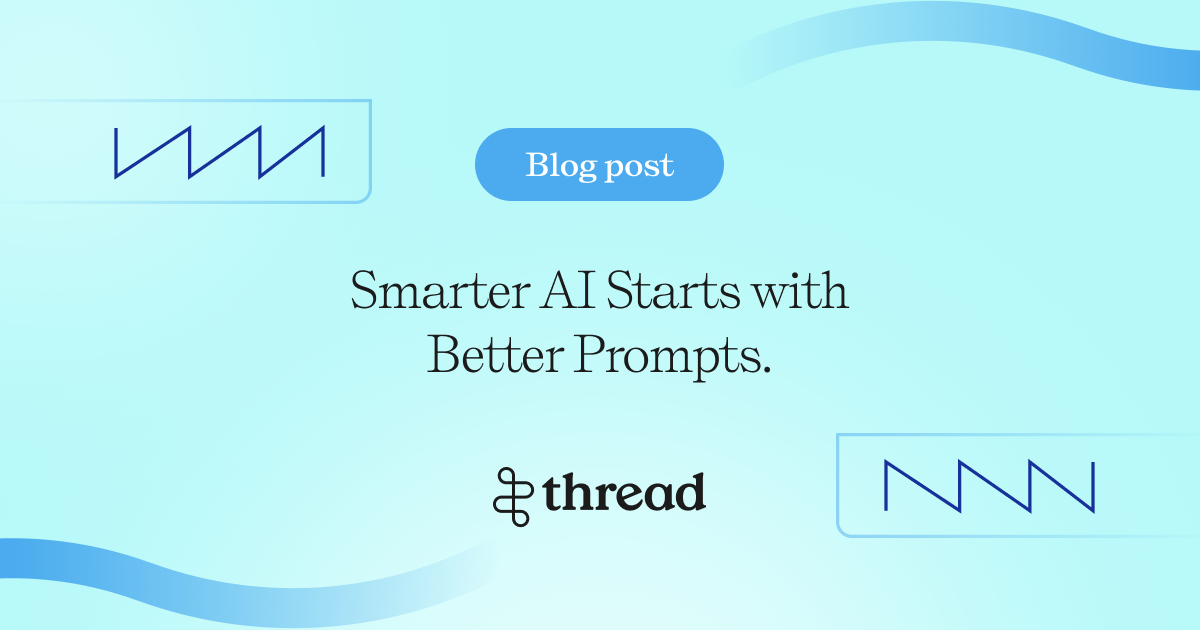AI Pricing for MSPs: What Most Teams Miss
Discover how predictable AI pricing can drive adoption and growth for MSPs by reducing friction and fostering confidence in AI tools within service...

AI is becoming a game-changer for MSPs. It can triage tickets, handle client communication, and work around the clock. But it only works as well as the instructions you give it. When the guidance is vague, AI can easily go off course. It might misroute tickets, deliver bland responses, or create more work for your team.
To get real value from AI, you have to treat it like a new team member. You would never tell a technician to just "handle tickets" and expect perfect results. The same goes for AI. It needs clear, specific, and thoughtful instructions in order to perform well.
Many leading MSPs are now developing what are called agentic operating procedures. These are structured prompts designed to guide AI agents through tasks in a way that mirrors how a human would approach problem-solving. Instead of giving AI a single instruction and hoping for the best, an agentic approach breaks complex tasks into smaller steps, with built-in context and direction at each stage.
This allows the AI to make decisions, follow logic, and adjust along the way. The result is a more consistent and intelligent performance that feels less like automation and more like having a capable teammate on the job.
AI does not have instinct or experience. It won’t catch the subtle cues that a human might. If your prompt is too general, the AI will likely give you a generic result.
Imagine a support request that comes in via email. You might want the AI to acknowledge that there could be a slight delay in response time before it routes the ticket. To do that, you don’t need code or complex rules. A well-worded prompt in plain language works best. The best prompts sound a lot like the way you would talk to a real teammate.
One Thread partner, SnapIT, noticed their AI triage agent was not following escalation rules for certain clients. The problem was that the AI was applying the same logic across the board. It was not making exceptions for co-managed environments where different rules applied.
To fix it, they wrote a new prompt that told the AI to skip its normal workflow when a ticket came from those companies. That one change solved the issue.
This is a good example of how AI sticks to instructions exactly as written. If your workflow has exceptions, you have to call them out directly. Even a short phrase like "only do this if" or "before moving forward" can help the AI make the right decision.
Staying on top of SLAs takes time. With the right prompting, AI can handle a lot of it automatically.
Let’s say a high-priority ticket comes in. Your prompt can tell the AI to respond with an estimated resolution time based on that client’s SLA. It can also take business hours into account. A reply like "We will address this by 10 AM tomorrow" is fast, accurate, and keeps the client informed.
Different types of tickets might get different replies. A password reset might have one timeline. A server issue might have another. These kinds of small adjustments can go a long way in keeping clients happy and informed.
Right now, most MSPs still write prompts by hand. But more advanced approaches are already taking shape. One example is retrieval-augmented generation. This allows AI to pull from your internal documentation, like SOPs or client contracts, and use that context to improve its responses in real time.
In the near future, AI could also learn from previous ticket outcomes and recommend improvements to the prompts themselves. That kind of feedback loop will help teams continuously refine how their AI performs.
You don’t need to overhaul everything to make AI work better for your team. Start by picking one issue that causes the most pain. It could be slow triage or missing SLA deadlines. Write one prompt that solves that specific problem. Then test it. Make small improvements. Even a few words can make a big difference.
AI will not fix everything by itself. But with the right prompting strategy, it can become a reliable part of your team. It can help you save time, reduce errors, and deliver better service.
If you want to explore how to get more out of AI, Thread can help you create smarter prompts and build the right workflows for your MSP. Book a demo today!
Discover how predictable AI pricing can drive adoption and growth for MSPs by reducing friction and fostering confidence in AI tools within service...
Discover 8 popular MSP pricing models, learn how to set your prices, and read pricing tips from industry professionals.
Discover how agentic SOPs empower MSP teams to act decisively, improve response times, and enhance client satisfaction through structured autonomy.
Sign up for our newsletter to get the latest and greatest delivered directly to your inbox by Aerosmith. just kidding, it's us, and the newsletter is awesome.